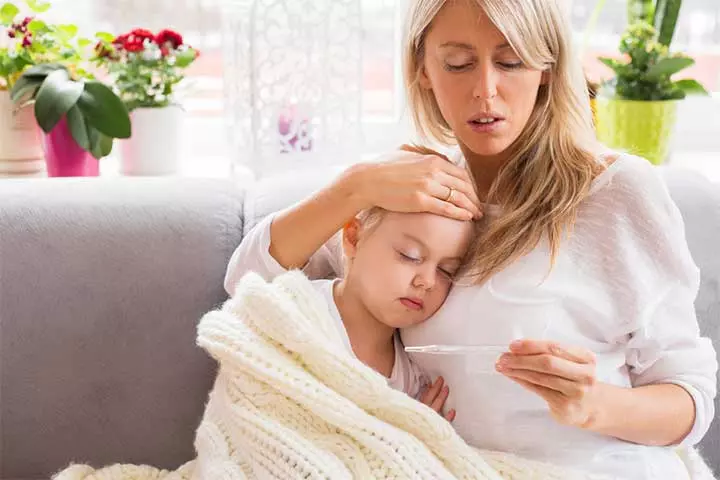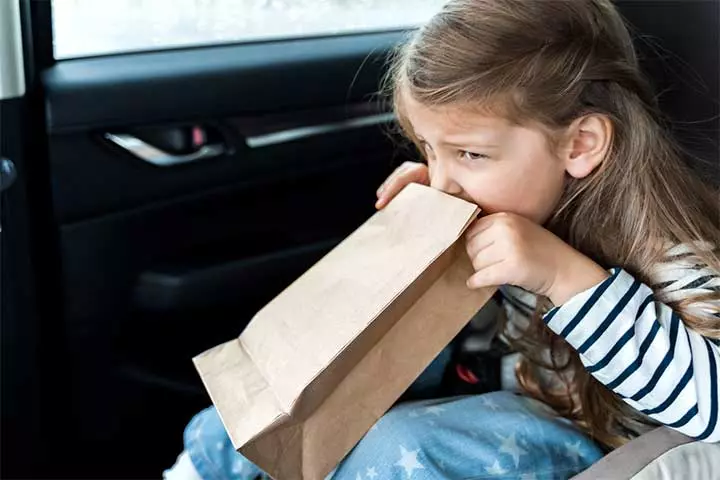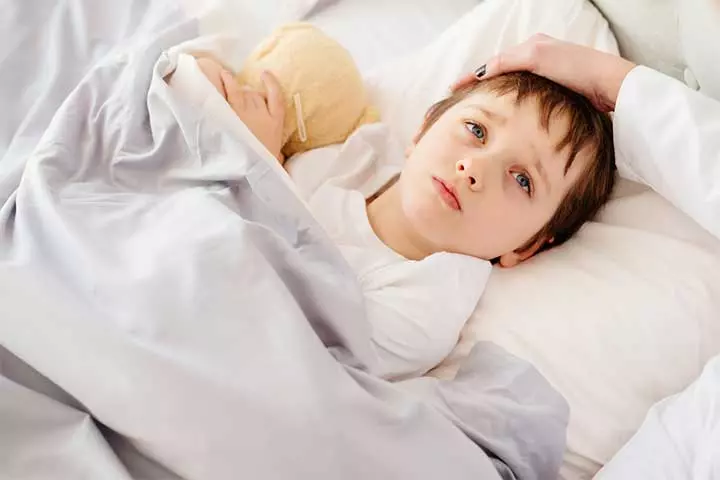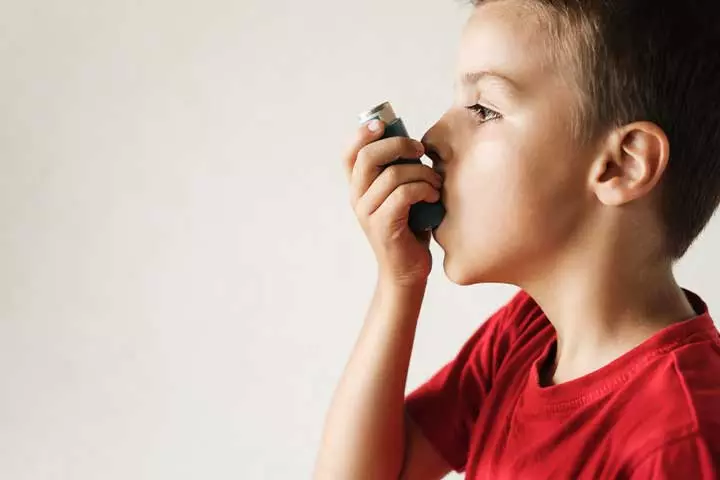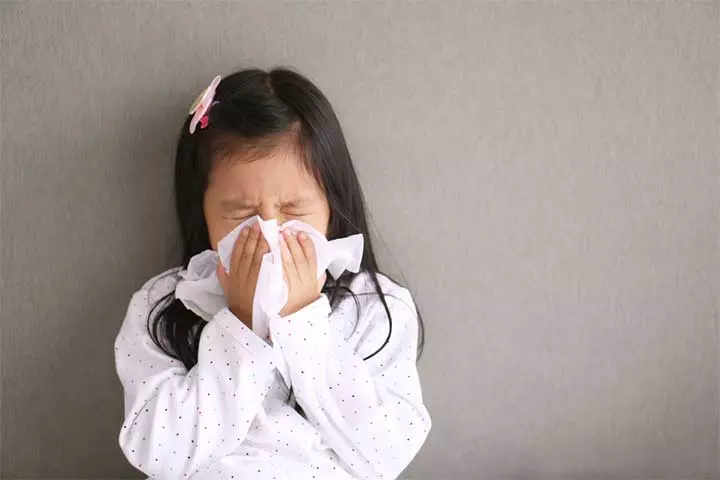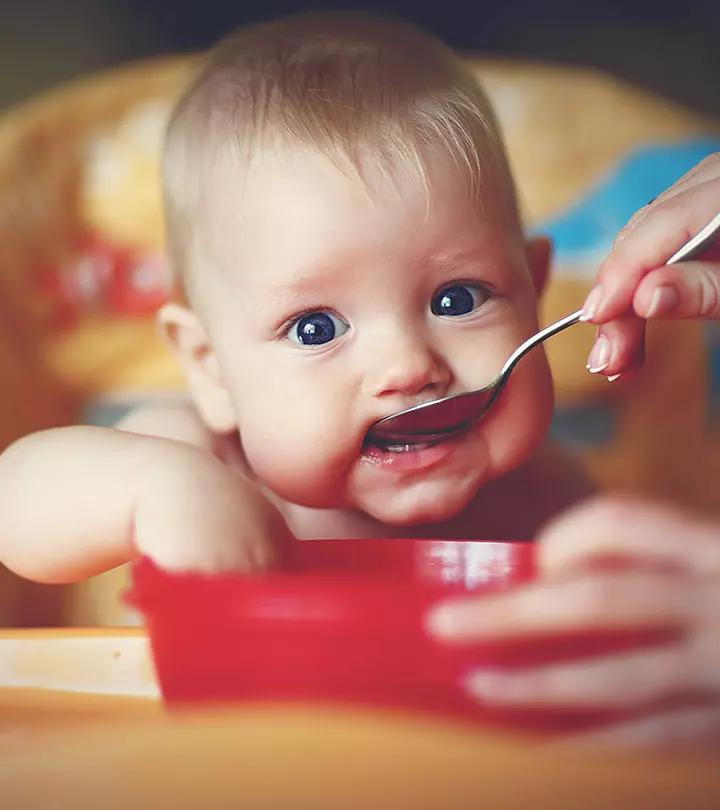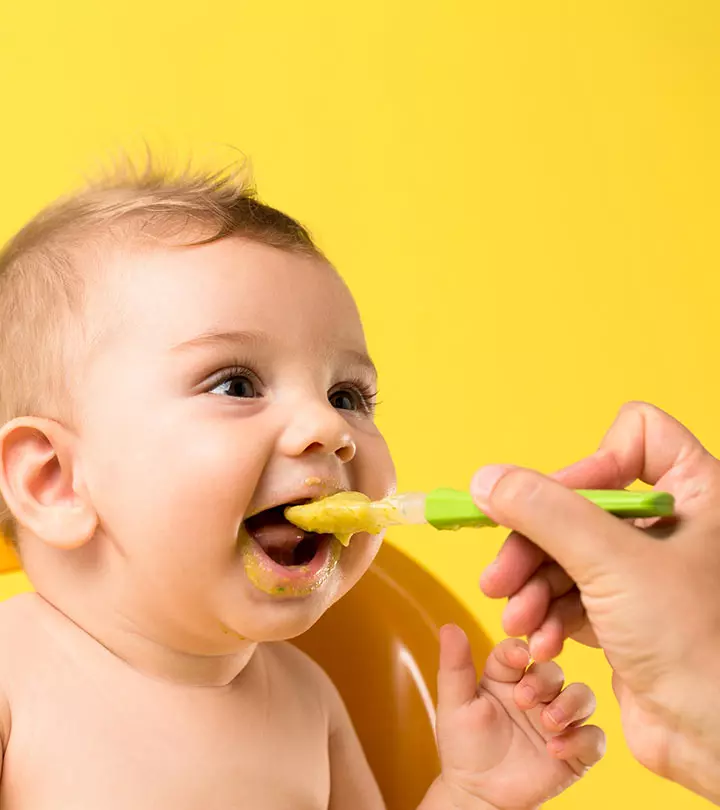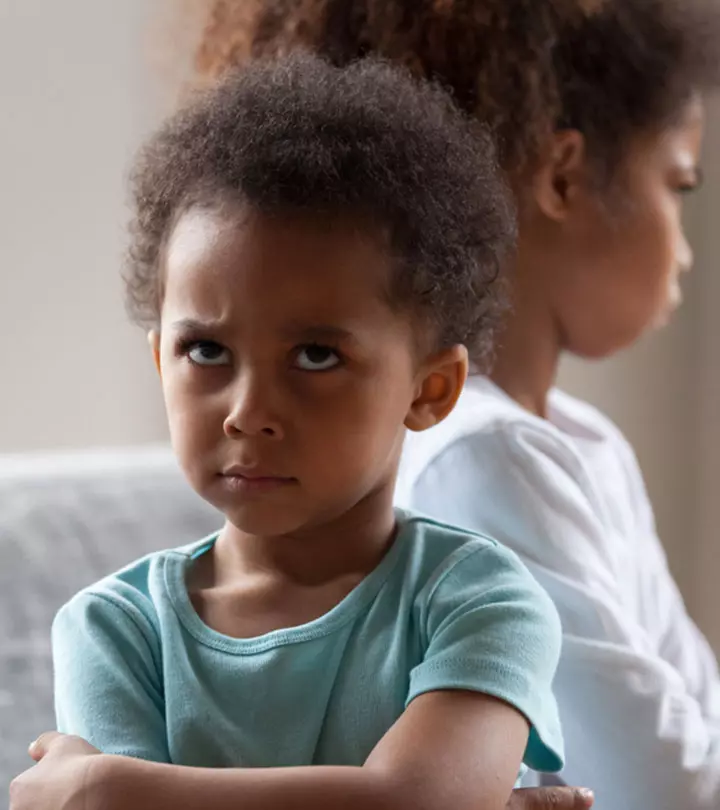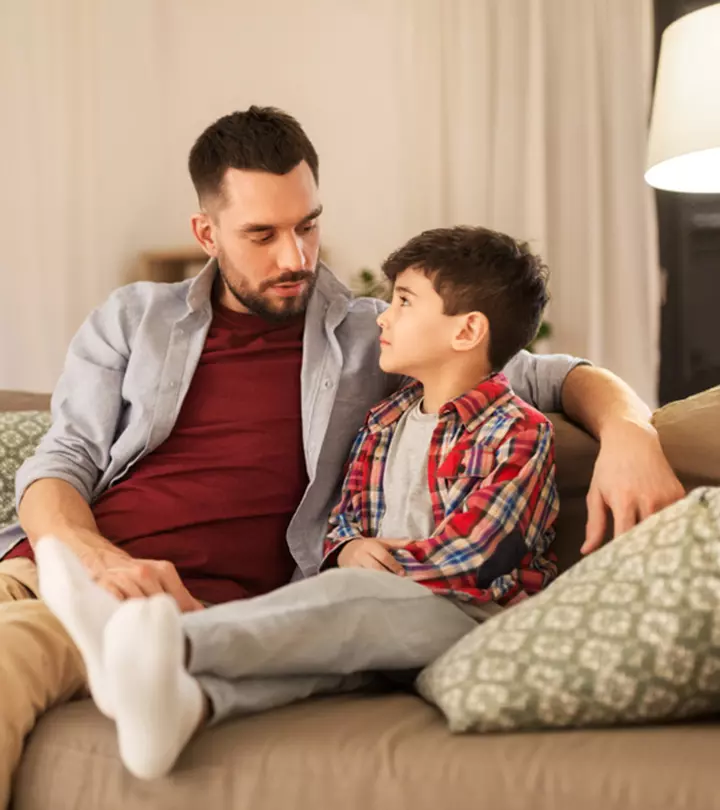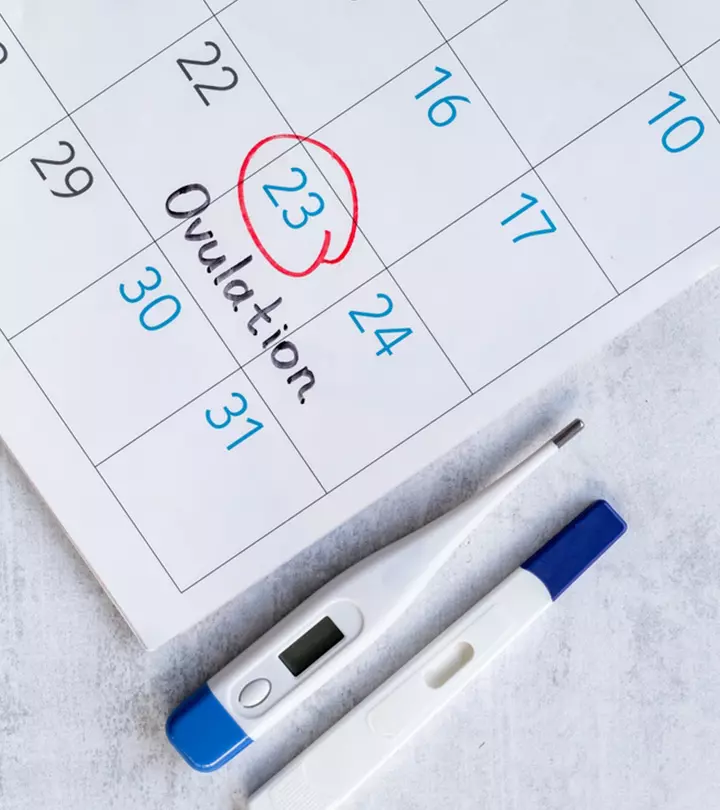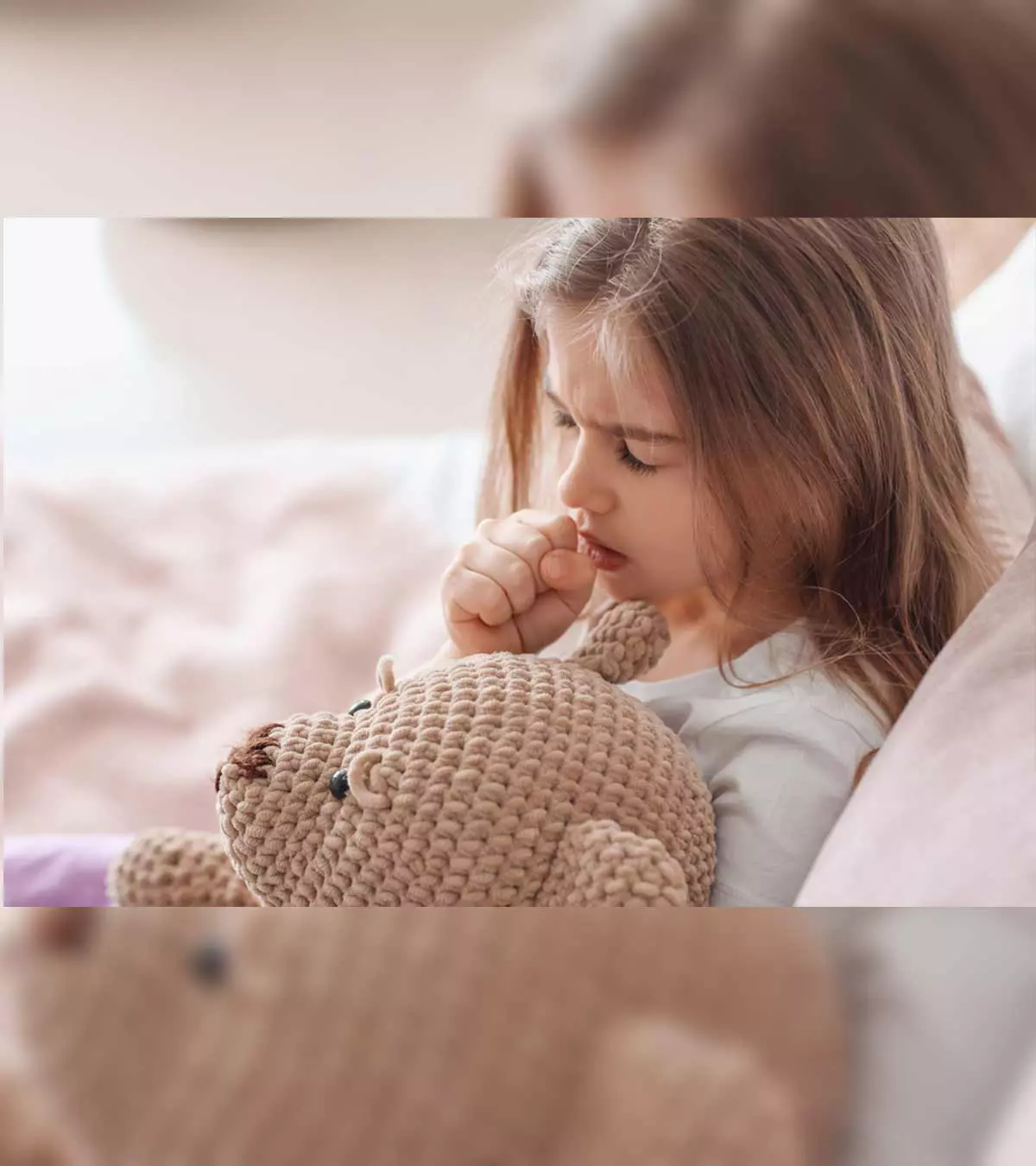

image Shutterstock
Has your child been coughing lately at night? Perhaps, you tried the regular cough syrup, but it didn’t seem to work. Coughing at night has been commonly observed in toddlers and is usually not a cause for concern. However, it is best to be aware of the different causes of nighttime coughing in children.
Before we dive into the many possible reasons your toddler is coughing at night, it is essential to know that cough is one of the most commonly reported symptoms of COVID-19 (1). Get a test done if your child has been coughing incessantly and if this is accompanied by other symptoms such as mild fever, diarrhea, loss of taste, loss of smell, and sore throat.
Fever Accompanied With Cough
In some cases, your child might have a fever that accompanies the cough at night. Cough and fever go hand in hand if your child has the flu or a cold (2). This is not a cause for worry. However, it is crucial to monitor your child for any other symptoms that they might have. Check to see if there is a loss of appetite or vomiting. Make sure to keep your child hydrated. Consult your child’s healthcare provider if the condition does not get better or if the symptoms worsen. If it is just the flu, the doctor will prescribe certain medications, and your child should be fine in a few days.
Vomiting And Cough
Coughing at night might be worrisome, to begin with, but it can be highly unsettling when this is followed by vomiting. In some cases, there might be an accumulation of phlegm. If the child cannot cough up the phlegm, sometimes, the body reacts by vomiting. This is usually not a cause for concern. However, if the vomiting is severe and does not seem to stop, medical intervention is required as vomiting can cause dehydration. Vomiting and cough can also be a symptom of pneumonia (3).
In most cases, if a child is suffering from pneumonia, other symptoms might be observed. This includes fatigue, pain in the chest, chills, fever, and a rapid breathing rate (4). Consult your doctor immediately if you notice these symptoms. Pneumonia can be fatal if not treated immediately.
Cough As A Result Of Croup
Is your child suffering from a barky cough? The chances are that it is croup. Croup is a medical condition in which the upper airway gets infected. In addition to its characteristic barky cough, you might also notice other symptoms such as difficulty breathing, fever, and a hoarse voice (5). If your child is diagnosed with croup, the doctor will prescribe nebulized epinephrine (6).
Cough Accompanied With Wheezing
In most cases, if a cough is accompanied by wheezing, it could indicate childhood asthma (7). Consult your doctor if your child has other symptoms such as rapid breathing that is shallow, chest tightness, and shortness of breath. Have you observed frequent chest colds in your child? Similarly, have you noticed that the cough and wheezing worsen when the child comes into contact with triggers such as dust, pollen, or smoke? If yes, it most likely is asthma (8). It is important to treat asthma at the earliest to avoid a possible asthma attack.
Whooping Cough In Children
Whooping cough is caused due to a bacterial infection. The main characteristic of whooping cough is its whooping sound. This sound is heard when the infected person is gasping for air soon after a cough. In most cases, children are vaccinated against whooping cough, due to which the symptoms can be mild. However, it is essential to consult a doctor and treat this condition immediately as it can prove to be fatal (9).
Post-Nasal Drip Cough
When there is an excessive accumulation of mucus, it tends to slide down the throat — this is known as a postnasal drip (10). Sometimes, this causes sore throats and coughs (11). In this case, a cough syrup prescribed by the pediatrician can help. It also helps to make your child sleep in a slightly elevated position. Contact your doctor if the cough persists.
How To Treat Nighttime Cough In Toddlers
Please note that the best person to treat your child is a medical professional. It is important to consult your doctor if your child seems to be suffering from a regular, persistent cough. But here are a few things that you can do to help your child:
- A warm shower before bedtime (12).
- Drinking warm water regularly (13).
- Natural remedies such as pepper with honey may help, but consult your doctor before doing this (14).
- Make sure you keep your child hydrated (15).
As you can see, coughing can have many different causes. In most cases, coughing can be harmless and is usually gone as soon as it comes. Make sure your child is well-rested and eating a balanced, nutritious diet. Call your doctor if the cough is alarming and accompanied by more severe symptoms. Let us know in the comments below what treatment works best for your child!
Community Experiences
Join the conversation and become a part of our nurturing community! Share your stories, experiences, and insights to connect with fellow parents.

